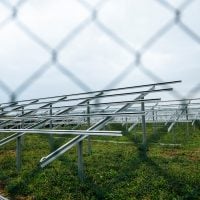Deadline: 31-Jan-24
The Democracy at Work Fund is currently accepting applications to build resilience among frontline workers’ organizations leading efforts at the intersection of labor rights, democracy, and a just transition.
The Democracy at Work Fund pools support from multiple funders to deliver small grants to frontline organizations in Asia, Africa, and Latin America aimed at building resilience and strengthening the capacity of workers’ organizations. The Fund prioritizes efforts led directly by workers in the informal economy, by women and migrant-led organizations, as well as efforts at the intersection of workers’ rights, gender justice, racial justice, and climate justice.
Areas
- Bolstering capacity to ensure physical and digital security, for example:
- Support to build technical and practical capacity of worker organizations to establish safeguarding mechanisms, develop safety protocols, and other strategies to address digital and physical threats. This could be through training and accompaniment on offline and online security practices and protocol, developing strategic partnerships with human rights defenders protection organizations, and building mutual support mechanisms.
- Pilot projects or capacity-building support to enable workers to use new technologies to build power, foster alliances, organize, strategize, and anticipate threats especially in contexts where there are growing threats to civic space.
- Responding to legal threats and building legal security, for example:
- Technical training to support labor rights defenders and those working at the intersection of labor and climate issues to respond to restrictive legislation, or to build peer support networks.
- Support to enable organizing campaigns to remain intact beyond an immediate threat, especially in contexts of closing civic space.
- Concerted efforts to document and expose threats and attacks against labor rights defenders in retaliation to their work on labor rights issues.
- Power-building work to improve working conditions and to defend core enabling rights to organize, associate and bargain collectively, for example:
- Strategies to advance social dialogue and collectivization among gig workers, workers in transition mineral supply chains, and workers in non-standard employment; not conducive to conventional modes of organization and collective bargaining;
- Support and advocacy for the recognition and rights of informal and marginalized workers, particularly women, migrants, and ethnic and racial minorities;
- Peer training on how to successfully organize, and build strategies and campaigns for change that will endure beyond single, time-bound issues.
Funding Information
- Budget requests within the range of $10,000 to $100,000 total for up to two years will be considered.
- Projects can start from April 2024 and range in duration from a few months to up to two years.
Geographic Scope
- The Fund will be rolled out in 11 focus countries in the Global South. These are: Argentina, Bangladesh, Brazil, Costa Rica, Ecuador, Ghana, Indonesia, Kenya, Malaysia, South Africa, and Uganda.
- These countries were selected on the basis of the scale and significance of threats to the rights of workers engaging on the frontlines of democracy and/or the climate crisis, the presence of opportunities in the wider ecosystem to push for positive reform, and the legal and regulatory context for foreign funding. They recognise there is no shortage of need to support this work. Additional countries may be considered in future funding rounds.
Eligibility Criteria
- Applicants in the following groups are encouraged to apply.
- Initiatives led directly by workers, whether in trade unions or more hybrid associations or groups, driving work aimed at institutional strengthening, advocacy, communication and other forms of capacity-building.
- Priority will be given to efforts led by workers from historically marginalized groups and/or in sectors or forms of employment where conventional modes of organization and collective bargaining have been especially challenging, such as in digital labor platforms, care and domestic work, informal work and among migrant workers.
- Organizations, associations and movements led by workers within the geographic scope will be given priority. Cross-country and regional initiatives involving either of these regions as well as another region would also be considered. The Fund may be expanded in the future to include a dedicated focus on other countries if sufficient funding is available.
- Proposals from more than one organization or entity as co-applicants should indicate the division of labor and respective roles of each organization.
For more information, visit Democracy at Work Fund.









































